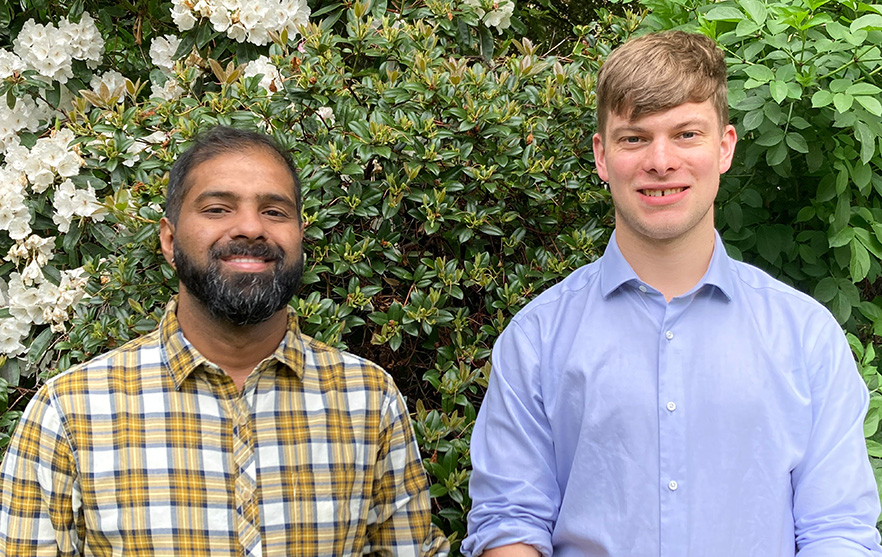
Otago PhD student Sai Shyam Vasantharajan (left) and medical student Edward Barnett.
A recent Dunedin pilot study has brought cancer researchers a step closer to developing an alternative detection tool for bowel cancer.
The study was led by a team from Associate Professor Aniruddha Chatterjee's laboratory at the Dunedin School of Medicine's Department of Pathology. Otago PhD student Sai Shyam Vasantharajan and medical student Edward Barnett played a key role.
As part of the study, the research team worked with local clinicians and patients at Dunedin Hospital, with the help of the Dunedin Colorectal Cohort.
In Aotearoa New Zealand, the number of people who die from colorectal cancer, also known as bowel cancer, is particularly high and this is increasing in people under 50 years old and in Māori, who are more likely to present with an advanced stage of the disease.
Vasantharajan says, “The earlier the disease is detected the better – so there's an urgent need for easily accessible and useful biomarkers so that can happen.”
A colonoscopy is the current “gold standard” for bowel cancer diagnosis. It's a highly reliable screening test, but is also expensive, invasive, and still has significant misdiagnosis rates. For that reason, researchers are trying to develop minimally invasive, adjunct screening tools.
Vasantharajan and Barnett say liquid biopsy could be used as a tool for early detection. Liquid biopsy involves analysing bodily fluids such as blood and urine, to identify tumour-related material, such as circulating tumour cells (CTCs) and tumour-related DNA.
Barnett says, “Liquid biopsy is a really exciting avenue for new screening tools – it's a lot simpler to perform compared to colonoscopy, which could improve healthcare access and inequities in Aotearoa.”
Liquid biopsies could mean it is possible to extend screening to more people. It could also help doctors decide which patients need a colonoscopy, so that this extensive procedure can be avoided for patients who do not require it. That would reduce the number of patient referrals, which in turn would reduce pressure on the health system.
The project involved looking at CTCs and showed this analysis had the potential to be developed as a means of detecting bowel cancer at an early stage. However, as usually only very low numbers of CTCs can be found in the blood, more work is needed to improve detection methods and routinely isolate more CTCs for analysis.
Publication details
Assessment of a Size-Based Method for Enriching Circulating Tumour Cells in Colorectal Cancer
Cancers
